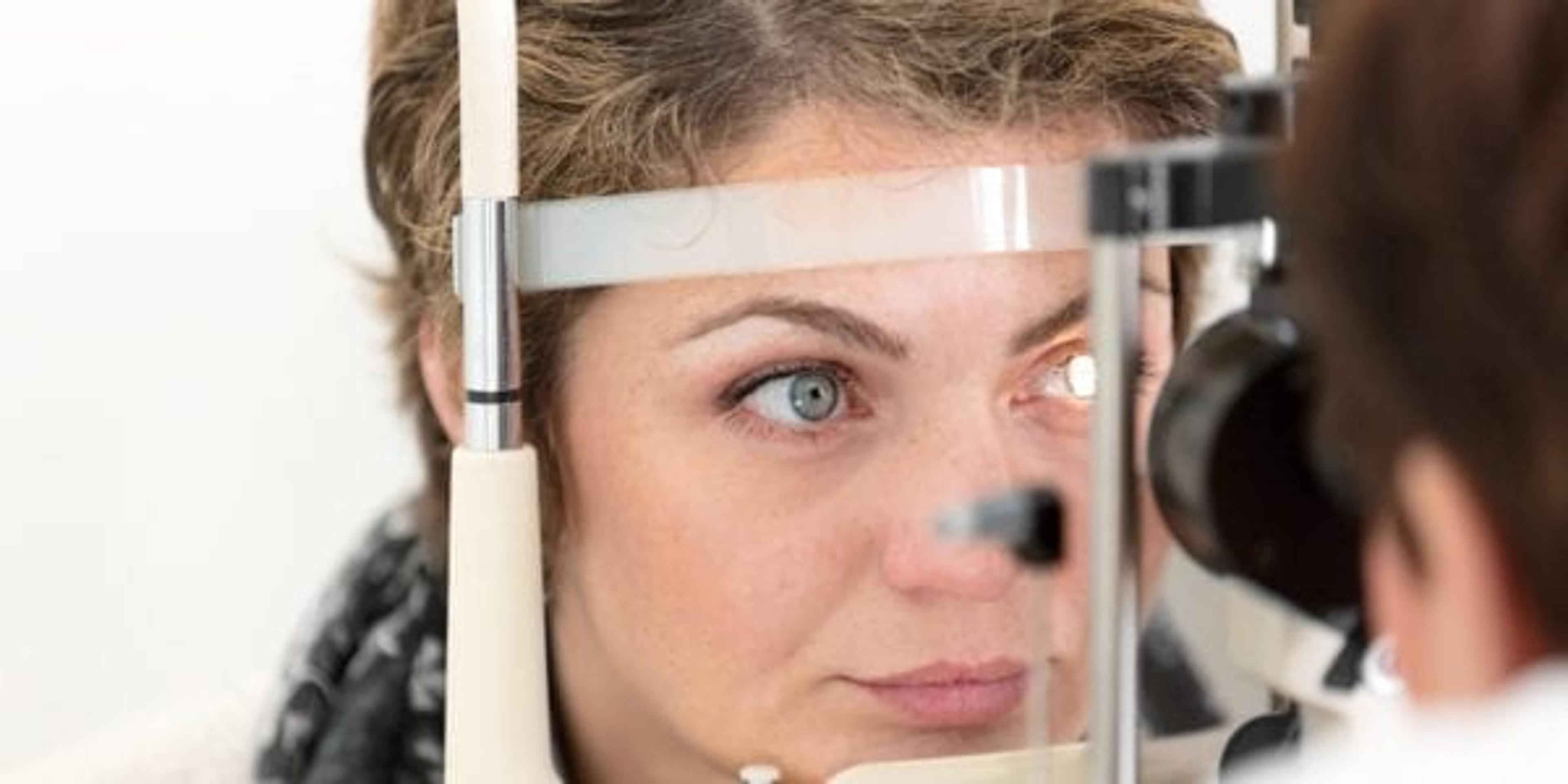When Age-Related Vision Changes Could Signal a Problem

Debbie Reinheimer
| 3 min read

Does this sound familiar? While out to dinner with friends, you extend your arm to move the menu farther away from your face. Others at the table don their reading glasses or hover their phone’s flashlight over the menu so they can see it better.
On the drive home that night, you find it more difficult to filter out the glare from headlights and traffic lights.
While sometimes frustrating, these are common signs of the vision changes that happen as we move through midlife. As the lens in our eyes become less elastic, it changes the eye’s ability to focus.
Sometimes though, eye and vision changes can signal other issues that require more care. Here are some age-related vision conditions, with some symptoms that are worthy of an eye exam:
- Presbyopia, or age-related loss of focus. Just like our skin, the lenses in our eyes lose elasticity as we get older. This makes it harder to read or see details up close. It also makes it harder to filter out light, so we see more glare. Most of the time, this is normal and happens gradually. However, if your vision is frequently changing, get it checked sooner rather than later. It could signal other changes, such as high blood pressure.
- Dry eye. As we get older, our tear production slows down which can cause our eyes to sting or feel gritty. Menopause may accentuate the problem. Eye drops can help but talk with your eye doctor to see if you need prescription drops rather than an over-the-counter solution.
- Floaters. Do you sometimes see small specks or random spots in your field of vision that go away after a few seconds? These floaters are tiny bits of protein that form in your eye as you age. Normally, they are infrequent and go away quickly. But, if you see a lot of them suddenly, and you see flashes of light, get it checked immediately. It could be an indication of retinal detachment, which can cause vision loss.
- Glaucoma. Glaucoma is a condition that affects the optic nerve – the nerve that connects visual signals from the eye to the brain. People over age 40 are more at risk for glaucoma. Untreated, it can lead to vision loss. When diagnosed early, glaucoma can be managed through medication or surgery. Regular eye exams include screenings for glaucoma. Have you noticed a loss in peripheral, or side, vision? Get that checked out.
- Cataracts. This clouding of the lens of the eye occurs in about half of adults by age 80. If you smoke or have diabetes, you’re more susceptible to it. You might have a cataract if your vision is fuzzy or hazy, as if your glasses are smudged. In the early stages, your vision may be improved with new prescription for glasses. As cataracts grow and impact your vision more, you may need surgery to remove the damaged lens and replace it with an artificial one.
- Age-Related Macular Degeneration. Are objects starting to look distorted? Do straight edges look wavy? Are you noticing a dark spot in the center of your visual field? These can be signs of age-related macular degeneration, the leading cause of vision loss in people over age 50. AMD effects the macula, part of the retina, and causes loss in the central portion of your vision.
If you’re over 40 and experiencing any of the symptoms above, make an appointment for an eye exam.
Want more content geared toward the joys of mid-life? Subscribe to our Midlife Map series here:
Please leave this field empty Interested in more of this content? We'll send related updates right to your inbox. Email Address *
Enjoy your new subscription!
If you enjoyed this post, you may also like:
Photo credit: zoranm





